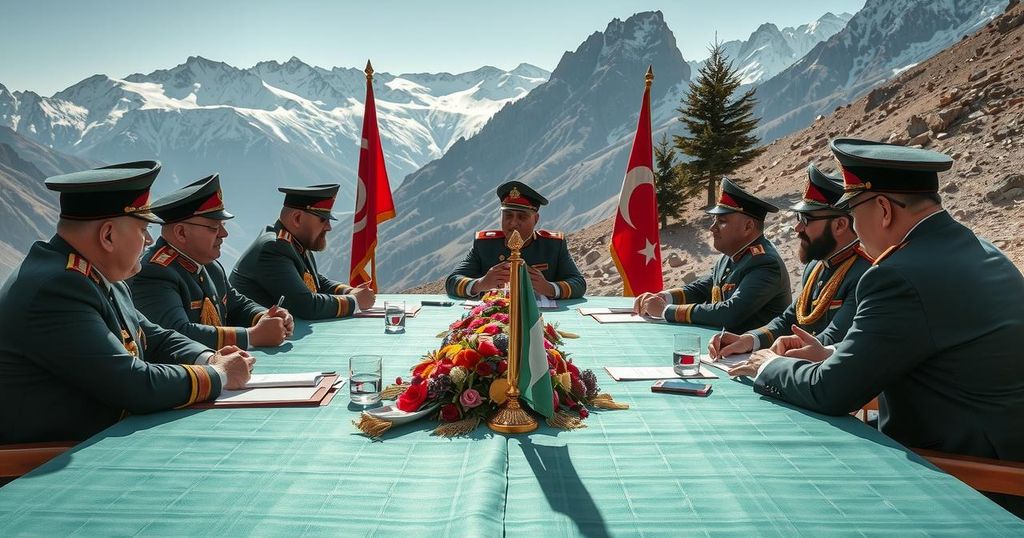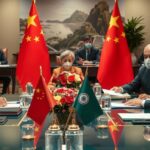Chinese and Indian Officials to Address Himalayan Border Dispute This Week
Chinese Foreign Minister Wang Yi will meet Indian National Security Adviser Ajit Doval to discuss the Himalayan border dispute, marking a significant diplomatic engagement following an agreement to disengage troops at the contested boundary. This dialogue represents the first since 2019 under the special representatives mechanism, reflecting improved relations between Beijing and New Delhi. Leaders Xi Jinping and Narendra Modi had previously reached consensus on promoting peace and stability in the region.
This week, Chinese Foreign Minister Wang Yi is set to host India’s National Security Adviser Ajit Doval in Beijing for discussions addressing the longstanding Himalayan border dispute. This meeting marks the 23rd round of the special representatives dialogue but is significant as it is the first since 2019, serving as an indicator of the warming relations between China and India. Previously, the two countries engaged in diplomatic talks that resulted in an agreement to disengage patrolling troops from the contentious border area, effectively aiming to resolve tensions following a violent altercation four years ago.
During a prior meeting in October between Chinese President Xi Jinping and Indian Prime Minister Narendra Modi, a consensus was reached to ensure peace along the border by seeking a fair resolution to the dispute. Strategically, both leaders agreed to enhance interactions across various governmental levels, striving for a return to stable relations. The backdrop of this agreement is the ongoing ambiguity regarding the 3,200 km Line of Actual Control (LAC), the de facto boundary that has historically sparked conflicts between the two nations.
The Himalayan border dispute between China and India has been a contentious issue for decades, marked by war and hostility since the Sino-Indian War of 1962. The northern boundary remains ill-defined, with both nations asserting claims over overlapping territories. Efforts for diplomatic resolutions have been intermittent, but recent movements suggest a shift towards constructive engagement. Notably, the special representatives dialogue mechanism was established to facilitate ongoing discussions, aiming to clarify and resolve issues surrounding the border demarcation, fostering greater stability in bilateral relations.
In conclusion, the upcoming discussions between Chinese Foreign Minister Wang Yi and Indian National Security Adviser Ajit Doval signify a potential advancement in resolving the Himalayan border dispute. Having witnessed a fragile truce following prior agreements, the diplomatic efforts underline a mutual intent to stabilize relations, promote peace in the border regions, and work toward a definitive solution to the territorial contention that has long plagued Sino-Indian relations.
Original Source: amp.scmp.com








Post Comment